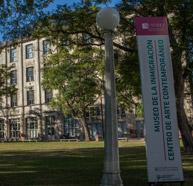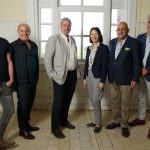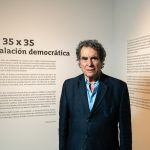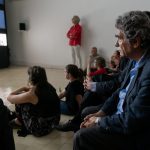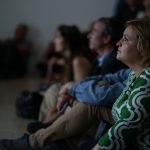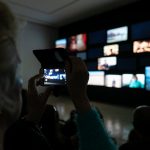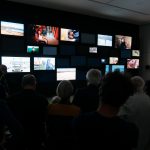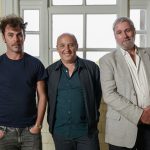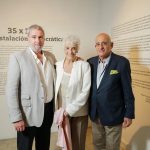-
35X35 A Democratic Installation
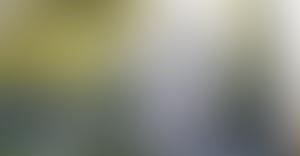
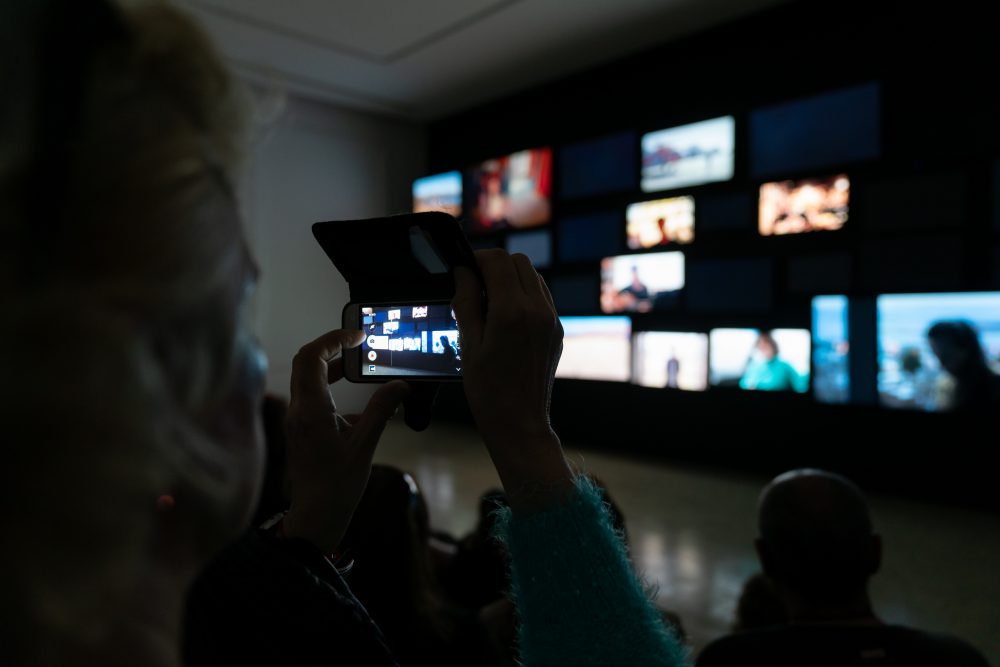
-
35X35 A Democratic Installation


-
35X35 A Democratic Installation

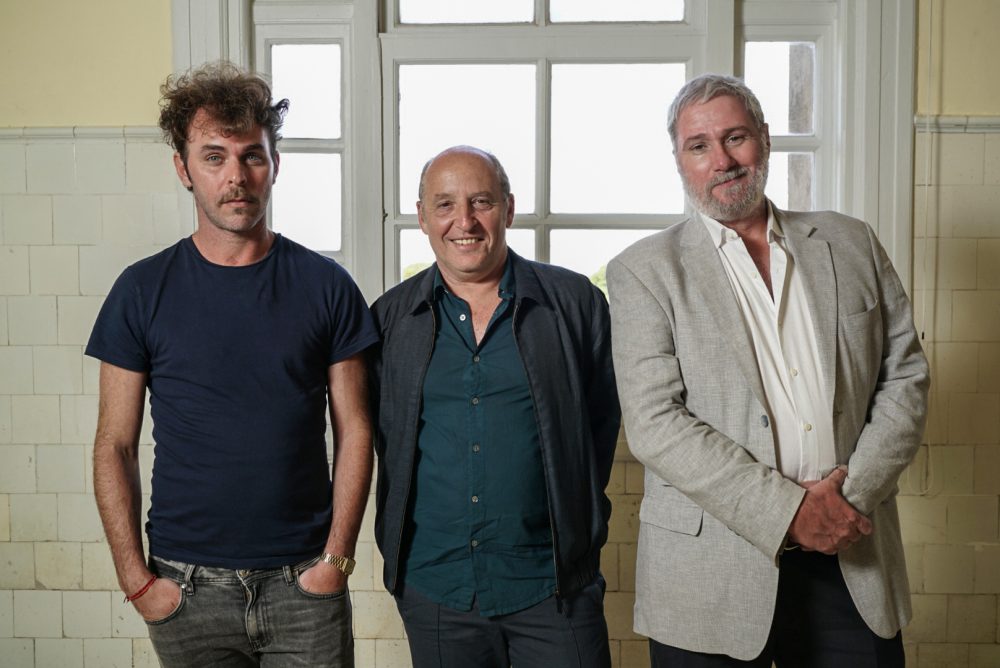
-
Thirty five years after the return of democracy, a staging of multitude and democratic individuality unites Alejandro Katz, Alejo Moguillansky and Martin Bauer, three figures of Argentine thought, at the MUNTREF Contemporary Art Center .
The Museum of the Universidad Nacional de Tres de Febrero, MUNTREF Contemporary Art Center inaugurated 35×35 A democratic installation, curated by critic, essayist, editor and translator Alejandro Katz. The work crosses moments of the life of 35 Argentineans born 35 years ago, at the same time that we were celebrating the return of democracy in 1983.
The installation was conceived as a project a year ago and during this time Katz, the filmmaker Alejo Moguillansky worked together in the direction and cinematographic montage and the musician Martín Bauer in the sonorous design together with a team of collaborators that traveled the country.
At the opening of the exhibition, the rector Aníbal Jozami – who is also director of the five museums of the University – greeted the presence of former Senator Graciela Fernández Meijide and writer Eduardo Jozami, “two people who played a fundamental role in the democracy we are celebrating today,” he said.
He also celebrated that this installation takes place in the MUNTREF, “we seek that all the expressions of art that house the different venues of our museums serve to build citizenship and to positively influence the life of the communities in which we are immersed.
“It is a project that commemorates the past and looks into the future,” said Jozami. “At this moment we have a very special commitment because we live in an era that is populated by expressions that have little to do with democracy,” he concluded.
For his part, the curator added that “democracy is something very beautiful and very fragile. Not only because of authoritarianism but also because of the democracy’s debts; its producing them by not being able to confer full citizenship to all those who should be citizens.
About the exhibition Katz said: “The commemoration of the 35 years passed since the recovery of democracy, and its uninterrupted continuity, stimulates a desire to express ourselves and produce speeches on democracy. On the contrary, through the trajectories of 35 people born 35 years ago in 1983, our idea was to let speak, to build a scene in which who speaks is democracy itself.
“35 x 35. A democratic installation” wants to be, at the same time, a fresco and a choral work, a staging of the multitude and of democratic individuality. Multitude because it is a collective, but individuality through the capture of stories, situations, particular positions. Multitude that refers to the subject of the collective self-government, individuality as an expression of democratic will to be the floor on which everyone designs their own life plan, with full autonomy to make choices,” added Katz.
“The exhibition is also literally that: an exhibition, a cut, a selection. Arbitrary, inevitable, unjust: it does not aspire to reflect the diversity of stories that our democracy made possible, but to express the very idea of diversity, and preferably – not exclusively – that which is present on the margins, where presence, due to the lack of the other’s gaze, vanishes until it becomes absence. The margins of the territory: people from the Puna and Tierra del Fuego; from the margins of society; from the margins of ideology. A somehow dissonant, noisy, uncomfortable, contrary to the aesthetics of what has been achieved – both of the lives achieved and of the images achieved, exhibition, expressed Katz in his curatorial text.
“That discomfort should not bury, however, a background of tenderness, of gratitude even, before this slight democratic condition that we inhabit today, made up of tugs and shreds, but which, in spite of everything – and that everything is undoubtedly great – in spite of everything is much more than the pure absence of a dictatorship”, he concluded.
The exhibition is sponsored by UNTREF and supported by the System of Media and Public Contents, the Institut Français d’Argentine, the French Embassy, the French Alliance, the Franco-Argentine Dialogue, the Goethe Institute and the Ministry of Culture of the Government of the City of Buenos Aires.
MUNTREF Contemporary Art Center is open from Tuesday to Sunday from 12:00 to 20:00 with free admission. The institution promotes and disseminates contemporary artistic and cultural practices through processes of research and dialogue between artists and curators, with the aim of consolidating the participation of diverse cultural and social actors. It is an active platform for dialogue, action and participation, where processes are generated for the exchange of knowledge and experiences, through the dynamics and strategies of art, culture and technology.
Alejandro Katz
He studied language and literature at the Universidad Nacional Autónoma de México. A critic, essayist, editor and translator, he has collaborated in numerous magazines and cultural supplements in Latin America, including La Cultura en México, Sábado, La Gaceta del Fondo, revista Ñ, Letras Libres, El País de Madrid, Trama magazine and the newspapers Clarín and La Nación de Buenos Aires.
He is an expert in Book, reading , publishing and cultural industries issues, he has participated as a lecturer or panelist in congresses and seminars in Mexico, Guadalajara, La Antigua, Panama City, San Pablo, Santiago de Chile, Montevideo, Madrid, Zaragoza, Santander, Bogotá, Medellín, Quito and Buenos Aires. For more than fifteen years he directed the publishing house Fondo de Cultura Económica in Argentina, and in 2006 he created Katz Editores, a house specialized in human and social sciences. He has been an advisor to UNESCO’s Regional Book Centre for Latin America and the Caribbean and to the Guadalajara International Book Fair. An observer of political and social reality, he regularly publishes analysis columns in the newspaper La Nación, and is regularly invited to participate in the main radio and television programs. He conducts the program El Zorro y el Erizo on National Radio. He is the author of several books, including La alegría del guerrero, El Simulacro and, in conversation with Luis Alberto Romero, La Argentina que duele. He is a member of the Board of Directors of Poder Ciudadano, the Argentine chapter of Transparency International, and is a member of the editorial committee of Nueva Revista Socialista and Tramas magazine in Madrid. He is a professor at the University of Buenos Aires and the National University of San Martín.
Alejo Moguillansky
He is a director, scriptwriter and film editor. His films La prisionera (2005), Castro (2009), El loro y el cisne (2013), El escarabajo de oro (2014) and La vendedora de fósforos (2017) have been premiered at the festivals of Locarno, Berlin, Viennale and London, among others. On three occasions he won the Prize for Best Argentine Film at the BAFICI with Castro, El escarabajo de oro and La vendedora de fósforos. His films were the focus of retrospectives at international festivals and museums. In 2017 he was the Argentinean filmmaker chosen by the Feria Arco in Madrid to represent his country. He made films by Mariano Llinás, Matías Piñeiro, Albertina Carri, Hugo Santiago and Rafael Filippelli, among others. In theatre he premiered Por el dinero (2013) and Los que amamos odiar (2018) together with Luciana Acuña, with whom he collaborates assiduously alone and with his group Krapp. He is a Professor at the Universidad del Cine, Buenos Aires. Together with Mariano Llinás, Laura Citarella and Agustín Mendilaharzu, he founded El Pampero Cine, the organization responsible for numerous films in its fifteen years of life. He is working on the post-production of two films, Por el dinero and Un Día de Caza, to be released in 2019.
Martin Bauer
He is a musician and composer, creator and director of the programme “Colón Contemporáneo” at the Colón Theatre. He is currently also director of the Teatro Argentino de La Plata. He founded and directed the Centro de Experimentación y Creación del Teatro Argentino de La Plata (TACEC), directed the Ciclo de Conciertos de Música Contemporánea del Teatro San Martín and was director of the Centro de Experimentación del Teatro Colón (CETC) for five seasons. He composed chamber music, music for ballet, film and theater. He also developed as a composer of musical theater, some of his works in this genre are: Incursion. Theme: Faust (presented in Argentina, 1998, 2010 and in New York, 2000) and VO (CETC, 2013-2014). His most recent creations are s (TACEC, 2017) and Dedicatorias (presented at the Biennial of Performance in 2015). He has also performed several plays, including Luz de Gas by Margarita Fernández, Infinito Nero and Vanitas by Salvatore Sciarrino, Satie, Joyce, Duchamp: an Alphabet by John Cage and La Vendedora de Fósforos by Helmut Lachenmann performed in the main hall of the Teatro Colón. He was a DAAD scholarship holder (Berlin) and received the Prize for Excellence in Culture from the National Endowment for the Arts. His work The Loser was recognized as the most important piece of the year by the Association of Music Critics in 2004. He teaches at numerous institutions, founded and directed the Centre for Advanced Studies in Contemporary Music (1993-2013) and gives seminars abroad, is regularly invited by the University of the Arts in Berlin.
RECTOR’S TEXT
In a country in which democratic practice was so often interrupted, the completion of thirty-five consecutive years of its exercise places us in a climate of celebration for the achievement. However, for those of us who believe that democracy must be accompanied by social justice this fades, when we see that persistence in democratic practice has not helped us to improve those rates.
We currently live in a situation in our region in which research shows us how voters from different countries tend not to prioritize the defense of the democratic order by considering that it does not solve their immediate needs or does not prevent the corrupt practices of governments. Therefore, this anniversary that we must celebrate so much, marks our obligation to persist with determination in the resolution of social inequality since this is the only way to defend and guarantee democratic practice.
The UNTREF, both in its specific teaching practice and in the field of sport, culture and all extension tasks, has exercised a deep social commitment for two decades with concrete results of positive impact on the improvement of social situations.
The memory and celebration of this anniversary of democracy is made from that commitment and therefore we have produced this project that was devised by Alejandro Katz.
This is possible thanks to the effective work of an excellent museum team under the direction of Diana B. Wechsler. All my gratitude to our team and to the creators of this exhibition, which is an affirmative, original tribute and which has been going through these thirty-five years with a view to the future.
Aníbal Y. Jozami
Rector
UNTREF
-
CURATORIAL TEXT
35 x 35
A democratic installation
If until 1983 the idea of citizenship in our country was fundamentally associated with nationality, from then on the fundamental link was established between citizenship and democracy: being a citizen meant fully exercising civic rights, but also being subject to the social, economic and cultural rights that, in principle, democracy was expected to provide.
However, in the 35 years since the end of the dictatorship, democracy distributed material and symbolic goods very unevenly and, consequently, society produced citizens of different categories.
Democratic frustrations should not, however, diminish the value of the continuity of a regime whose importance lies less in the rule of selection of governors that is its own than in its capacity to build collective knowledge about what is common to us, to produce the conditions in which the public reasons with which we account for our interests, expectations and desires are presented.
But the spirit of commemoration – the commemoration of 35 years since the recovery of democracy and its uninterrupted continuity – stimulates the desire to say, to produce discourses on democracy. Our idea was, on the contrary, to let speak, to construct the scene in which democracy is the one that speaks through the trajectories of 35 people born 35 years ago, in 1983.
35 x 35. Thus, a democratic installation wants to be, at the same time, a fresco and a choral work, a staging of the multitude and of democratic individuality. Multitude because it is a collective, but individuality through the capture of stories, situations, particular positions. Multitude that refers to the subject of collective self-government, individuality as an expression of the democratic will to be the floor on which everyone designs their own life plan, with full autonomy to make their choices.
“The exhibition is also literally that: an exhibition, a cut, a selection. Arbitrary, inevitable, unjust: it does not aspire to reflect the diversity of stories that our democracy made possible, but to express the very idea of diversity, and preferably – not exclusively – that which is present on the margins, where presence, due to the lack of the other’s gaze, vanishes until it becomes absence. The margins of the territory: people from the Puna and Tierra del Fuego; the margins of society; the margins of ideology. A somehow dissonant, noisy, uncomfortable, contrary to the aesthetics of what has been achieved – both of the lives achieved and of the images achieved exhibition, expressed Katz in his curatorial text.
This discomfort should not hide, however, a background of tenderness, even gratitude, in the face of this slight democratic condition that we inhabit today, made up of tugs and shreds, but which, in spite of everything – and that all is undoubtedly great – is much more than the pure absence of a dictatorship.
Alejandro Katz
-
SELECTED PHOTOS
Venue
Museum of Immigration